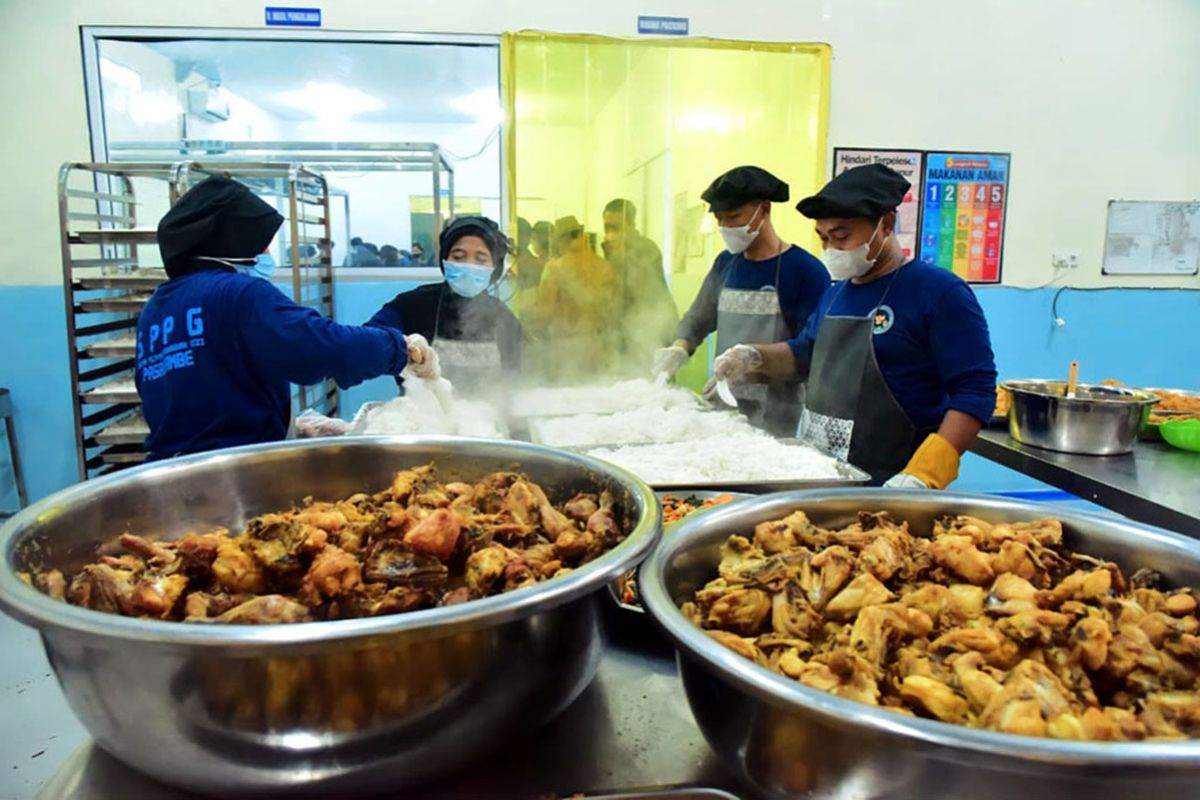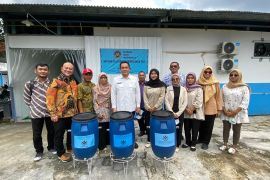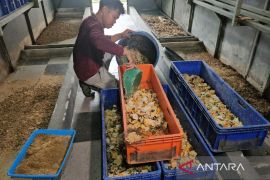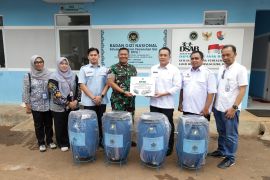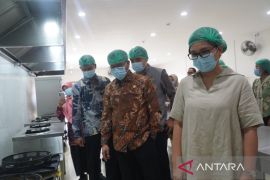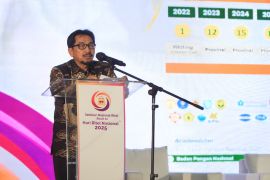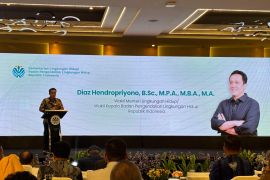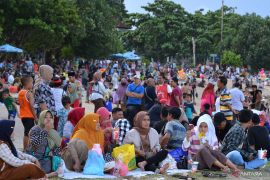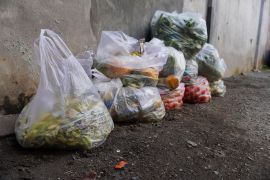The Free Nutritious Meal (MBG) program, known for meeting the nutritional needs of students, pregnant women, and breastfeeding mothers, also has the potential to turn food waste - often considered useless - into valuable resources.
Young people in Lumajang, such as Asriafi Ath Thoriq, see MBG food waste as an opportunity for innovation, entrepreneurship, and environmental contribution.
The MBG program has been implemented by the Lumajang District Government through two public kitchens in Pasrujambe and Klakah Sub-districts, serving 3,750 beneficiaries.
The Head of Lumajang District, Indah Amperawati, views the free meal program as a long-term investment that goes far beyond providing lunches. Children in rural areas now have equal access to balanced nutrition, ensuring they are not left behind compared to those in big cities.
"The MBG program not only fills their stomachs but also teaches discipline, promotes healthy eating habits, and allows families to better manage their daily expenses," Amperawati said.
The benefits of the MBG program extend beyond classrooms, as each meal supports local livelihoods. Every Nutrition Fulfillment Service Unit (SPPG) or MBG public kitchen employs at least 50 workers, including nutritionists, cooks, drivers, and cleaning staff.
On a broader level, MBG supports national food security. By utilizing local agricultural products, villages in Lumajang act not only as beneficiaries but also as producers, helping sustain future food supplies as part of long-term investment.
According to Asriafi, waste generated from the MBG program can be converted into eco-enzymes, a sustainable household and agricultural cleaning agent.
Eco-enzymes can be transformed into disinfectants, soaps, liquid fertilizers, and even maggot feed for farming. This gives MBG waste new economic value while creating income opportunities for local youth.
He believes that the key to effective waste processing lies in awareness and creativity among young people.
"Food waste should be seen as an asset, not a problem. With innovation and guidance, we can create eco-friendly products while supporting the local economy," said Asriafi, recipient of the Kalpataru and Village Innovation Badges from the Ministry of Villages.
He added that waste processing activity also brings educational values, by helping young people to foster environmental responsibility, resource management, and fostering an entrepreneurial spirit from an early age.
Moreover, eco-enzymes are more than a business - they symbolize collective awareness in transforming waste into useful products, maintaining a clean environment, and stimulating the local economy.
However, not all MBG kitchens are yet able to process food waste into eco-enzymes. Some public kitchens donate leftover food to neighbors for animal feed.
"We want the younger generation to realize that every food ingredient has potential. Food waste can be turned into eco-enzymes, fertilizer, or maggot feed. It’s a business opportunity and a contribution to the earth," Asriafi said.
He hopes his initiative will inspire replication across other regions.
With collaboration among the government, youth communities, and innovation activists, food waste can become both an economic resource and an educational tool for environmental stewardship.
Asriafi believes that eco-enzymes have strong market potential. A liter can be sold at a competitive price, while related products such as liquid fertilizers and maggot feed attract farmers and small enterprises.
The initiative also nurtures a green entrepreneurial spirit in the younger generation by teaching them to manage businesses while also protecting the environment.
Eco-enzymes embody creativity in waste management and offer practical, sustainable solutions.
Asriafi, who also founded Waroeng Domba 99 and Rumah Muda Berdaya, encourages young people in Lumajang to turn food waste into profitable ventures.
Compost and liquid fertilizer
A similar idea is being developed by young farmer and environmental activist Dzaki Fahruddin. He collects food waste from the MBG public kitchen at the Yosowilangun SPPG and processes it into eco-enzymes, which are later converted into compost and liquid fertilizer.
In addition to reducing waste, these products benefit local agriculture. Dzaki is also developing other innovative, high-value materials derived from waste.
He explained that producing eco-enzymes is simple but requires consistency and discipline.
"Food waste is chopped into small pieces, mixed with brown sugar and water, then fermented for three months to produce usable eco-enzymes," he said.
According to him, food waste processing is not merely an individual innovation but a collective movement that can inspire other villages to manage waste, reduce pollution, and generate new economic opportunities.
Dzaki’s initiative shows that small innovations can bring major impacts, transforming MBG waste from garbage into capital for a greener, more creative, and more independent future.
MBG waste can also be turned into liquid fertilizer. Initially, some farmers were hesitant to use it, but after witnessing its effectiveness - yielding more fertile land compared to conventional fertilizers - they became enthusiastic.
The liquid fertilizer promotes healthier plant growth and helps reduce farming costs.
The success of these young innovators in transforming waste into a sustainable business deserves recognition, as it supports both economic growth and environmental well-being.
Related news: Environment Ministry calls for waste management in free meal program
Editor: Primayanti
Copyright © ANTARA 2025
